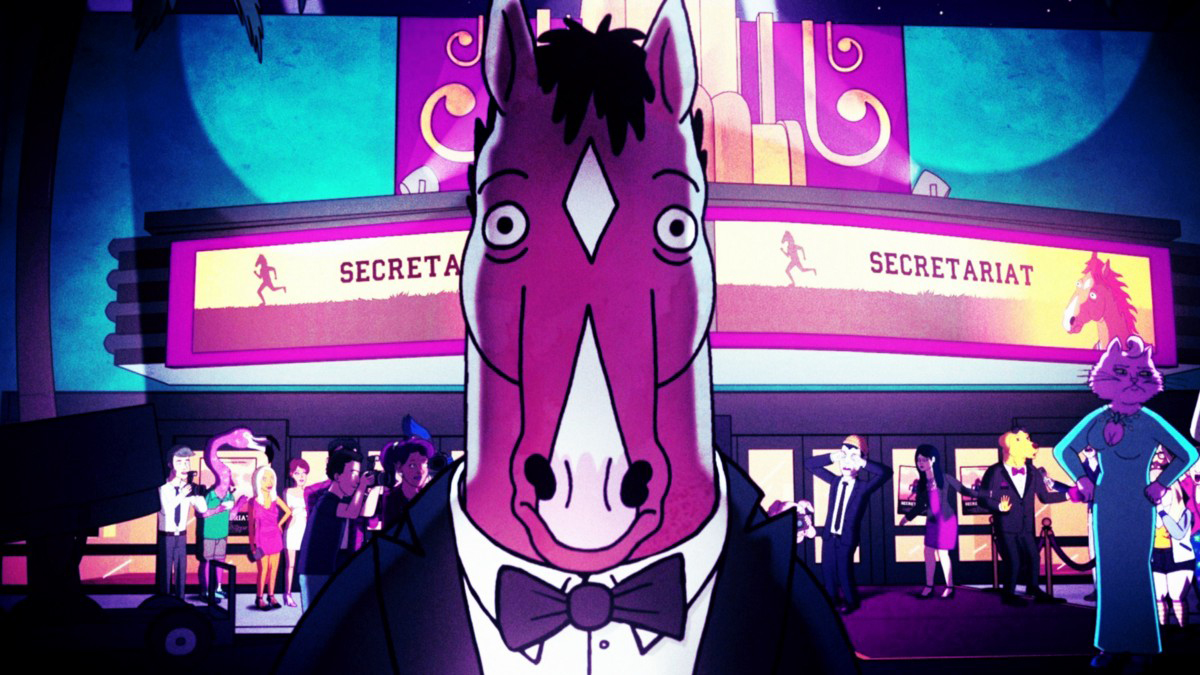This is my third and most likely final review of Bojack Horseman. The Netflix-exclusive adult animation series recently had its series finale after six seasons. The deeply troubled horse actor and those around him have been through many misadventures, all of which come to a head in the final season.
The second half of the last season was delayed until January of 2020. To briefly recap the first half of the season that came out in October of last year, the various mistakes and moments of weakness for Bojack are coming back to haunt him, and a character he is close to is apparently about to be told a dark secret Bojack carries.
In my previous review of season five and the first half of season six, I predicted that Bojack’s story, when it concluded, would end with either his death or his redemption. I am not entirely sure if I was right or not.
The events that have a bearing on the final episodes reach all the way back to the very beginnings of the show and make references to characters and events viewers had forgotten about by then. While this use of continuity is impressive, it did make for some confusing moments as I tried to jog my memory of the previous seasons. It also makes for a change in that Bojack is dealing more with the long-term consequences of his actions, unlike the short-term ones he has mostly faced until now. All of these various events look as if they will converge in the finale in one spectacular final resolution. What we get, however, is rather different.
The latter half of season six (especially the penultimate episode) raises the spectre of Bojack’s imminent death. The final episode is less nerve-wracking, but during it, Bojack expresses his fear that he will cause something to go horribly wrong like he has so many times in the past. The viewer shares this tension. This is the end of the series, all bets are off, and literally anything can happen. Viewers were kept on the edge right up until the final credits started rolling, wondering if the other shoe was about to drop.
The finale ends on a somewhat upbeat and optimistic note, but the ending is open-ended in a lot of ways. It seems that Bojack has always desired a final resolution wherein he will be happy and content for the rest of his days. Alas, the real world does not work that way, and neither does this show, but in the end, Bojack (and some other characters who struggle with their own demons) come to accept that. The finale is very introspective. In it, Bojack spends time talking with each of the four major supporting characters who have been on the show from beginning to end: Mr. Peanutbutter, Princess Carolyn, Todd Chavez, and Diane Nguyen. They have all been through a lot, and each of them has changed to varying degrees. They are not the same people they were at the beginning of the series or even the beginning of the final season, and these changes are generally for the better. The series ends with the possibility (but no guarantee) that the destructive habits and patterns of the past will not continue.
Looking back, the series itself has changed from what it started as. In the beginning it was about a jerk protagonist getting into random, wacky hijinks with a bunch of visual animal puns in the background. It didn’t do much for me at first. Yet as the series went on, it began exploring the characters and setting more, delving into complex and mature themes like loss, mental illness, abuse, and the meaning of existence. This is where Bojack Horseman ultimately gained its appeal from.
A cynical part of me suspects that the loose ending is to leave open the possibility of extending the series, but I hope they do not. The way I see it, Bojack Horseman ends at the perfect time in the perfect way. The show went on long enough to realize its potential, but not so long that it became stale and overplayed. The final note we leave on both fits the tone of the series as a whole, and yet feels satisfactory in a way that is hard to explain. The characters’ lives carry on, as before, but for perhaps the first time, that’s not so bad.


